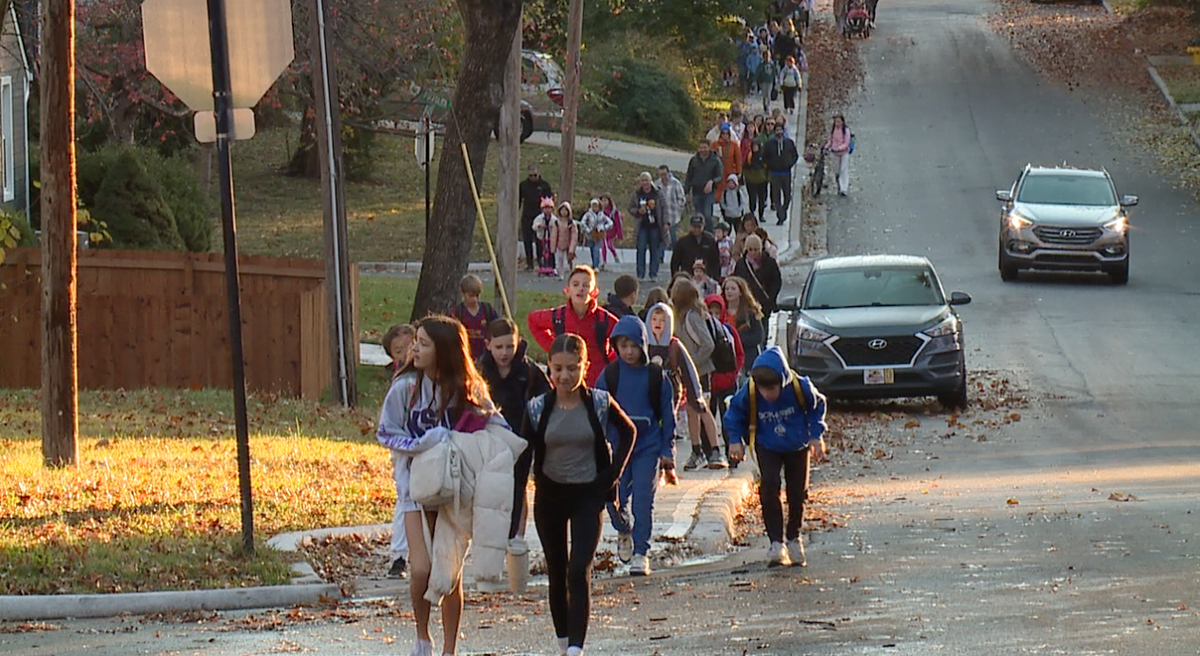Ruby Bridges makes a trip to Kansas, students honor her by walking to school

Students at Highlands Elementary School honored Ruby Bridges by walking to school.
Click here for updates on this story
TOPEKA, Kansas (KSHB) — Students throughout Kansas honored a special day in history by walking to school.
On Nov. 14, 1960, Ruby Bridges became one of the first Black students to integrate a school in the South.
At six years old, she walked into William Frantz Elementary School in New Orleans escorted by U.S. Marshals. She was subject to racism, threats and hatred.
The Shawnee Mission School District, Olathe Public Schools and Kansas City, Kansas, Public Schools joined those in the state and country recognizing Bridges’ contribution.
Kansas state rep. Mari Lynn-Poskin led a bipartisan effort to get Bridges to speak at Washburn University after the second year of students participating in “Ruby Bridges Walk to School Day.”
Mercy David, a senior at Olathe East High School was in the front row with her classmates listening to Bridges.
David said: “She was a kid. She thought she was going to college. She thought people were celebrating her because she was so smart but what was around her was hate.”
Peris Mugo, a senior at Olathe South High School said it was a surreal moment to meet Bridges face-to-face.
“It was eye-opening because you hear the first person to ever and you think that’s such a long time ago but her being in front of you and [she’s] not old at all,” Mugo said.
The students realized history isn’t that far in the past.
David, whose family is originally from Kenya, thought about her own experiences attending a predominantly white high school.
“It was rare to see Black people in my school. Her explaining how she felt different, she felt off…people were so distant from her. I had that experience too,” she said.
Ruby Bridges didn’t ask to make history at six years old.
The civil rights icon explained how she wanted to go to school just like them.
“The reason I’m here today…Olathe South…is because of the desegregating of schools,” Mugo said.
Bridges made history and they were among students who heard her tell it.
“Some things were relatable, other things weren’t and I’m glad they weren’t,” David said. “It’s because of her I can’t relate to her story.”
Please note: This content carries a strict local market embargo. If you share the same market as the contributor of this article, you may not use it on any platform.